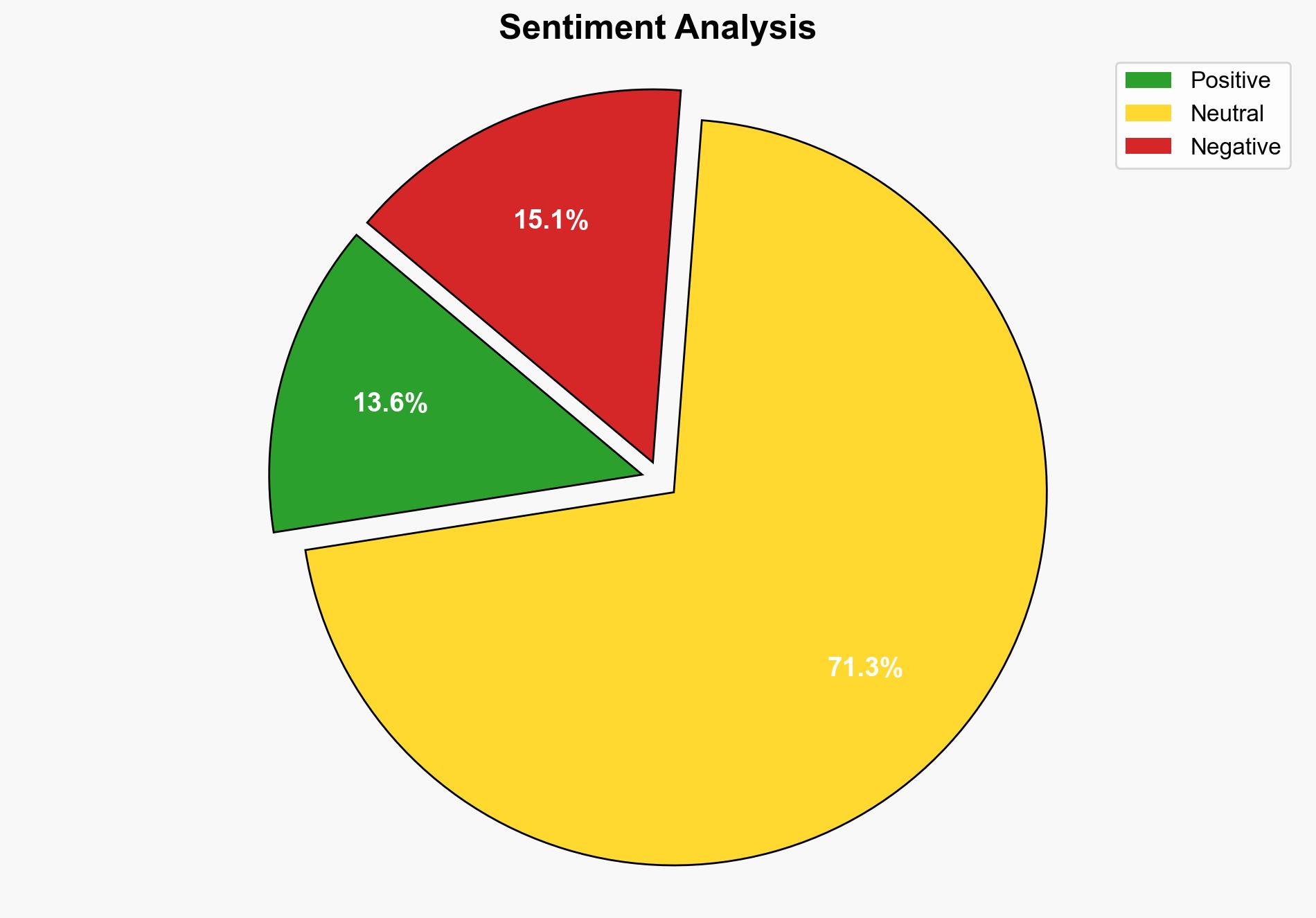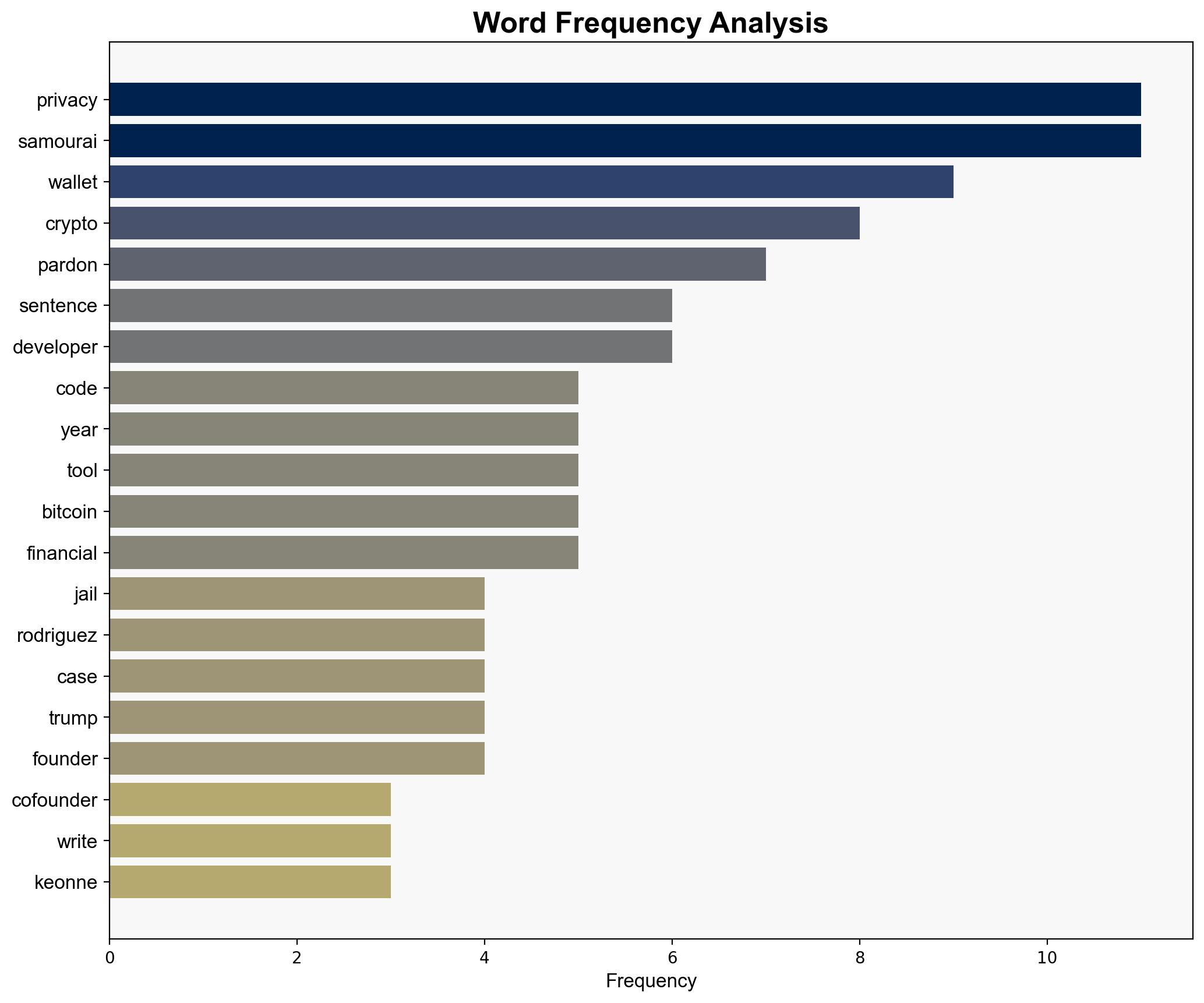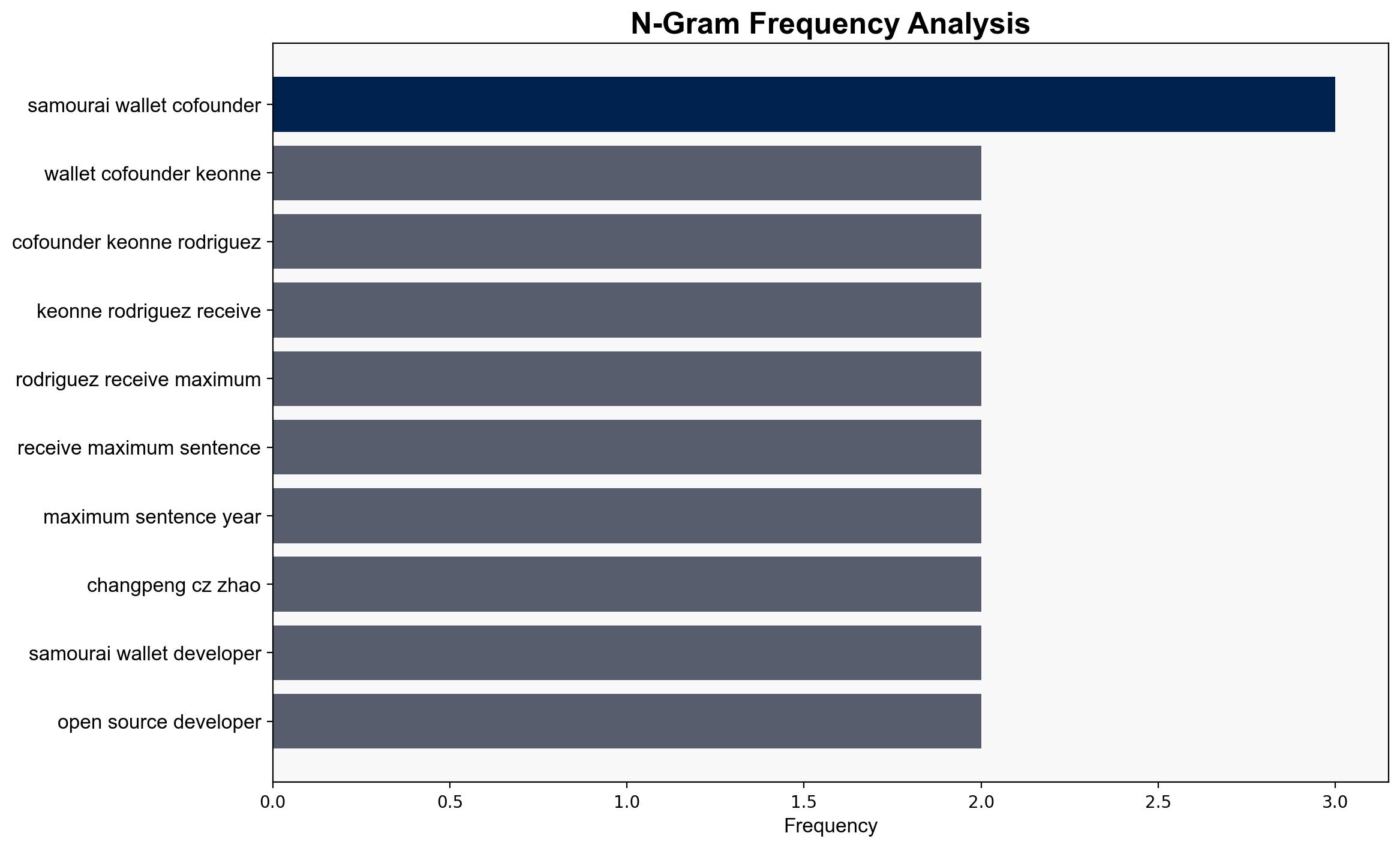Privacy on trial as Samourai Wallet cofounder lands in jail for writing code – CryptoSlate
Published on: 2025-11-08
Intelligence Report: Privacy on trial as Samourai Wallet cofounder lands in jail for writing code – CryptoSlate
1. BLUF (Bottom Line Up Front)
The most supported hypothesis is that the prosecution of Keonne Rodriguez is a strategic move in a broader governmental effort to regulate and control cryptocurrency technologies perceived as facilitating illegal activities. Confidence level: Moderate. Recommended action: Monitor legislative and judicial developments in cryptocurrency regulation and advocate for balanced policies that protect privacy while addressing legitimate legal concerns.
2. Competing Hypotheses
1. **Hypothesis A:** The prosecution of Keonne Rodriguez is primarily a legal action targeting the facilitation of illegal activities through privacy-enhancing technologies.
2. **Hypothesis B:** The prosecution is a politically motivated action aimed at curbing the growth of decentralized financial systems that challenge traditional financial institutions and governmental control.
Using Analysis of Competing Hypotheses (ACH 2.0), Hypothesis A is better supported by the explicit charges of money laundering and operating an unlicensed money transmission business. However, Hypothesis B is supported by the broader context of political discourse and the contrasting treatment of financial institutions.
3. Key Assumptions and Red Flags
– Assumption in Hypothesis A: The legal system is acting independently of political influence.
– Assumption in Hypothesis B: Political motivations significantly influence legal actions against cryptocurrency developers.
– Red Flags: The disparity in treatment between cryptocurrency developers and traditional financial institutions, such as JPMorgan’s settlement without jail time.
– Missing Data: Detailed evidence linking Samourai Wallet’s code directly to specific criminal activities.
4. Implications and Strategic Risks
– **Economic Risks:** Potential chilling effect on innovation in the cryptocurrency sector, deterring developers from creating privacy-focused technologies.
– **Cyber Risks:** Increased scrutiny and potential regulation could drive privacy technology development underground, complicating law enforcement efforts.
– **Geopolitical Risks:** Strained relations with countries that adopt more permissive cryptocurrency regulations, potentially leading to regulatory arbitrage.
– **Psychological Risks:** Erosion of trust in the legal system among cryptocurrency advocates, potentially radicalizing some elements.
5. Recommendations and Outlook
- Engage with policymakers to advocate for balanced cryptocurrency regulations that protect privacy while addressing legitimate legal concerns.
- Monitor ongoing legal cases and legislative developments to anticipate shifts in regulatory environments.
- Scenario Projections:
- Best Case: Adoption of balanced regulations that foster innovation and address legal concerns.
- Worst Case: Overregulation stifles innovation, driving developers to jurisdictions with lax regulations.
- Most Likely: Continued legal challenges with incremental regulatory adjustments.
6. Key Individuals and Entities
– Keonne Rodriguez
– Max Keiser
– Donald Trump
– Ross Ulbricht
– Changpeng “CZ” Zhao
– JPMorgan
7. Thematic Tags
national security threats, cybersecurity, financial regulation, privacy rights





